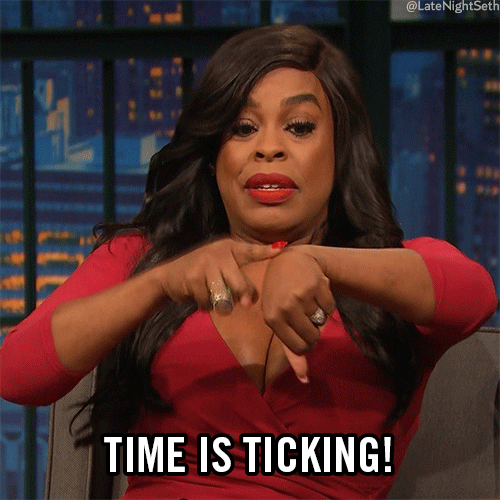Becoming a successful freelancer requires careful planning and strategic execution. Moonlighting a side hustle is technically not illegal to do but it’s heavily frowned upon.
But we all want to make money, right?
So what’s the ideal way of making money and how to become a freelancer to work on the sideline?
This article plans to share with you tips that will help you navigate the freelancing world with confidence and success.
Key Takeaways
- Assess your skills and identify your strengths and weaknesses.
- Build a diverse and impressive portfolio to showcase your work.
- Conduct thorough market research to identify potential clients and opportunities.
- Develop effective networking strategies to connect with potential clients and collaborators.
- Master time management to balance your freelance work with other commitments.
How To Become A Freelancer

Being a freelancer means having to work additional hours to make more. Are you up for it?
While society may begin to accept this form of making money, the work culture in some parts of the world has not accepted it due to the harm it may cause in their work-life when choosing which one to prioritize.
1. Skill Assessment

Before diving into the world of freelancing, it’s crucial to assess your skills and understand where your strengths lie.
Start by listing all the skills you possess that are relevant to the services you plan to offer. This can include technical skills, soft skills, and any specialized knowledge you have.
- Technical skills: These are the hard skills you’ve acquired through education, training, or experience that are directly related to your field.
- Soft skills: Communication, problem-solving, and time management are just as important as technical abilities.
- Specialized knowledge: Industry-specific knowledge can set you apart from the competition.
Remember, freelancers are often hired based on their ability to deliver results. Make sure you’re honest with yourself about your capabilities and areas for improvement.
Once you’ve identified your skills, rate them on a scale from novice to expert. This will help you understand your competitive edge and identify areas where you may need further development or training.
2. Portfolio Development

Developing a compelling portfolio is crucial for showcasing your skills and attracting clients. Your portfolio is the first impression you make on potential clients, so it’s essential to include your best work. Start by selecting projects that demonstrate your expertise and diversity in your field.
- Include a variety of work samples
- Highlight any notable clients or projects
- Demonstrate the results you’ve achieved
Remember, your portfolio should be a living document. Regularly update it with new projects to keep it fresh and relevant. If you’re just starting out, consider doing some pro bono work or personal projects to build your portfolio.
Focus on quality over quantity. It’s better to have a few outstanding pieces than a large collection of mediocre work.
3. Market Research

Understanding the market is crucial for any freelancer aiming to succeed. Market research helps you identify your target clients, understand your competition, and determine the right pricing for your services. Start by analyzing the demand for your skills and who might need them.
- Identify your niche: What specific services will you offer?
- Analyze competitors: What are they offering, and at what price?
- Determine client needs: What problems do your potential clients need to be solved?
Remember, the goal of market research is not just to gather data, but to derive actionable insights that can guide your freelancing strategy.
Once you have a clear picture of the market, you can tailor your services to meet the needs of your clients more effectively. This step is essential in setting yourself apart from the competition and positioning yourself as a go-to expert in your field.
4. Networking Strategies

In the world of freelancing, networking is your lifeline. It’s not just about who you know; it’s about who knows you and the value you can provide. Start by identifying networking events, both online and offline, that are relevant to your field. Attend these events with the goal of making genuine connections rather than just handing out business cards.
- Engage with online communities related to your skills.
- Volunteer your services to non-profits or local businesses.
- Join professional associations or groups.
- Connect with other freelancers and consider collaborations.
Remember, every interaction is an opportunity to showcase your expertise and professionalism. Be proactive in following up with new contacts, and always be ready to pitch your services succinctly.
Effective networking strategies can lead to referrals, partnerships, and even mentorship opportunities. Keep track of the contacts you make and the context of your interactions in a simple spreadsheet or CRM tool. This will help you maintain and nurture your professional relationships over time.
5. Time Management

Mastering time management is crucial for a successful freelancing career. As a freelancer, you’ll often juggle multiple projects with varying deadlines. Without effective time management, work quality can suffer, and stress levels can skyrocket.
- Prioritize tasks: Start by identifying what’s urgent and important. Tackle these tasks first.
- Set clear goals: Define what you want to achieve daily, weekly, and monthly.
- Use tools: Leverage time-tracking and project management tools to stay organized.
- Avoid multitasking: Focus on one task at a time for better efficiency.
Remember, time is your most valuable asset. Use it wisely to balance work, personal development, and leisure. Creating a structured schedule and sticking to it can help you maintain a healthy work-life balance and ensure you meet your professional goals.
Hone Your Skills
From honing their skills to building a strong network, freelancers have the opportunity to create a thriving and sustainable career. With dedication, perseverance, and a strategic approach, anyone can become a successful freelancer. So, take the leap and start your freelance journey today!
Frequently Asked Questions
What skills do I need to become a freelancer?
As a freelancer, it’s important to have skills that are in demand in the market. This may include web development, graphic design, writing, marketing, and more.
How can I build a strong portfolio as a freelancer?
To build a strong portfolio, you can start by working on personal projects, collaborating with others, and showcasing your best work on platforms like Behance, Dribble, or personal websites.
What are some effective market research strategies for freelancers?
Freelancers can conduct market research by identifying their target audience, analyzing competitors, staying updated on industry trends, and seeking feedback from potential clients.
What networking strategies can help freelancers grow their client base?
Networking strategies for freelancers include attending industry events, joining online communities, leveraging social media, and building relationships with other professionals in their field.
How can freelancers manage their time effectively?
Freelancers can manage their time by setting clear goals, prioritizing tasks, creating a schedule, using time management tools, and maintaining a healthy work-life balance.
What are the common challenges faced by freelancers and how can they be overcome?
Common challenges for freelancers include fluctuating income, isolation, and managing multiple projects. These challenges can be overcome by budgeting, staying connected with other freelancers, and setting boundaries for work and personal life.





